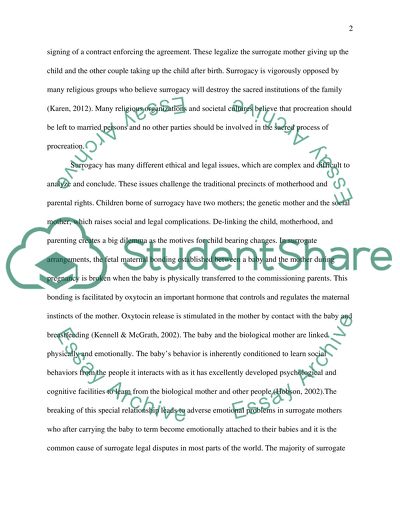Cite this document
(“Health Sciences and Medicine Research Paper Example | Topics and Well Written Essays - 2000 words”, n.d.)
Retrieved from https://studentshare.org/health-sciences-medicine/1398233-surrogacy
Retrieved from https://studentshare.org/health-sciences-medicine/1398233-surrogacy
(Health Sciences and Medicine Research Paper Example | Topics and Well Written Essays - 2000 Words)
https://studentshare.org/health-sciences-medicine/1398233-surrogacy.
https://studentshare.org/health-sciences-medicine/1398233-surrogacy.
“Health Sciences and Medicine Research Paper Example | Topics and Well Written Essays - 2000 Words”, n.d. https://studentshare.org/health-sciences-medicine/1398233-surrogacy.


